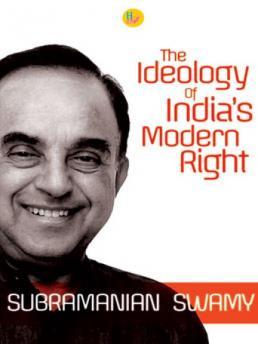The Ideology of India's Modern Right by Subramanian Swamy - Review by Abhishek Desikan
This book is a concise treatise on developing an ideology and mindset based on Hindutva, which is required for India to modernize and grow as a global player on the world stage. In the process, Subramanian Swamy touches upon different aspects of India and expands on what he calls ‘The Modern Right Framework’.
Swamy gives a hurried overview of the Hindu civilization, the Vedas, Upanishads, and Sanatana Dharma. He then goes into some detail in analyzing the constitutional approach to the majority and minority question and the various judgments delivered by the Hon’ble Supreme court in this regard. In particular, the dichotomy between Article 25 and Article 30 is brought out (individual rights vs. group minority rights). Swamy highlights that the core problem at the root of this is the lack of confidence and confusion among today’s Indians. The confusion lies in whether the Republic of India, founded in 1947, is a legatee of ancient Hindu India or a new nation altogether. He stresses the need for the majority Hindus and dharmic faiths and the minority Muslims to understand who we are to help diffuse the communal tensions and strengthen national integrity.
Swamy then delves into the problem of falsified history in our history textbooks and the damage caused by Marxist and left-leaning academia. He analyzes the chronology of Indian kings and Itihasas and Puranas as expounded by Western Indologists. Swamy points that their dating system is entirely wrong due to using a single account of Megasthenes' history of India to map Sandrocottus with Chandragupta Maurya. Swamy provides his own timeline, which dates Indian history much earlier and explains India has been a continuous and unbroken civilization. He also talks about the first war of Independence in 1857 and how these historians deliberately reduced its importance to being a ‘Sepoy Mutiny."
Finally, we learn about the ‘Integral Humanism’ proposed by Deendayal Upadhyaya. This is a new ideological framework that puts the economic and spiritual development of the human at the center. It includes the concept of ‘Chiti’ (soul) of a nation which each nation must discover to decide the correct formulation of its economic policy. He puts this in contrast with existing ideologies like Capitalism, Communism, and Democratic Socialism and how they all ignore the growth of an individual and hence are flawed.
Swamy makes a case for Sanksrit as the link language which Indians should strive towards and how eventually Hindi should become indistinguishable from Sanskrit. Since most of our texts are Sanskrit-based, he believes this is the approach we need to take to learn from the ocean of resources.
Some parts of this book were repetitive/not appropriately edited, making it less coherent. Still, overall, it was a decent read.

Originally published here.